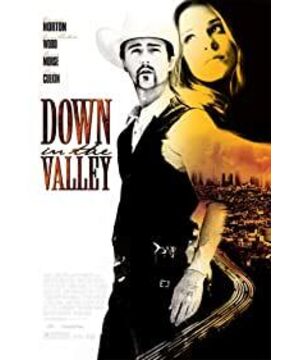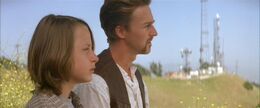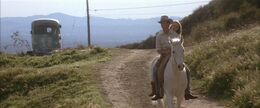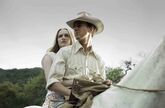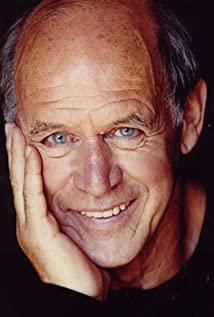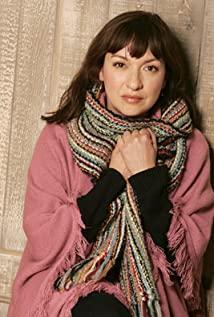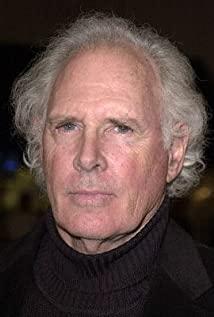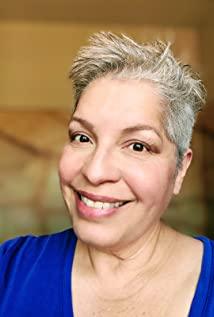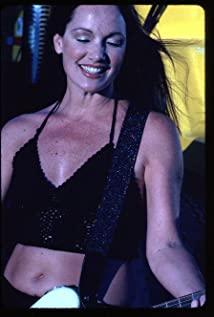"I want to go to the beach with you," Harlan said, before turning back and leaving his work gloves behind. That pair of gloves symbolized his efforts to live down-to-earth, and at that moment, he left it behind without hesitation and went after his dream.
Harlan is a marginalized person ignored by society. After being abandoned by his father at the age of 13, he began to live in a juvenile detention center and was later jailed for a year for robbery. He fantasized about being a cowboy, and he devoutly believed in the ideals of the West, believing that people should care and respect each other. He wanted to start his life again in the valley, wanted to see an honest face, but felt that most of the people around him were no longer human.
Tobe made him imagine that he was no longer alone. He wrote to his father, who had not seen each other for a long time: "There are 8 million people in this town, and she is the one that belongs to me. She took me to her house, and they treated me as their own. People accepted me. We were always together like shadows of each other." Simple longings, pitiful fantasies, poignant.
A person living in a fantasy is already insane, but these people don't realize it, they intuitively reject him, treat him as a danger, and blow him away like an annoyingly insignificant fly. "That's not how a person should be treated," he said.
Harlan accepts information from reality, but gives his own fantasy and draws twisted conclusions. Tobe admitted that she was unhappy living in the home, her window glass was shattered by Wade, Lonnie told him that Wade was not his biological father, Wade rudely told Lonnie to shut up not to speak, and threatened Harlan with a gun to stay away from his children. Seeing all this, Harlan thinks "it suddenly became clear" that Wade was not a good father and that Tobe and Lonnie would not only be unhappy living with him, but could be abused. He felt that he had finally "understood the purpose of his life, and everything else was an illusion". He decided to take Tobe and Lonnie away, "to find a greener grass."
Towards the end of the film, Harlan and Lonnie arrive in a small town, Harlan wakes up in the morning to the music, he follows the sound and goes out dreaming to see women in plain old dresses and men in duffle coats , dancing to the music, peaceful and happy. At that moment, his expression was so happy and unbelievable, it seemed that he had finally found his green grass and his ideal home. He is like a small river that finally flows into his own valley.
Perhaps the point of Into the Valley is not about Harlan's fate, but about speaking through Harlan what people don't say, what they don't really think about. His fantasies and longings reflect the distortions of modern society, the loneliness in people's hearts: teenage boys (Tobe and her friends) have nothing to do and hang out on the streets; Time; the little boy (Lonnie) is alone at home, playing with his father's gun.
In the Western era, pioneers rode on horses to find a green meadow and build a home. There were clear goals in life, and people were open and friendly. Today, the meaning of life is unknown; people have become indifferent to each other; the West is no longer there, and all you can see is wide highways, endless traffic, and overhead cables crisscrossing each other. , and cluttered houses. What have we lost?
Harlan wrote to his father: "Dear Joe, Ain't it funny how life goes? We all struggle so mildly. I don't even think we really know what secrets we are looking for.
Into the Valley is not just insanity Harlan's search for the meaning of life and his own place also reflects the loss and struggle of modern people. It expresses the nostalgia and longing for the West with a sad story and a romantic approach. But the West is also just a symbol: that is The land we seem to have once had, but is no longer there.
View more about Down in the Valley reviews


